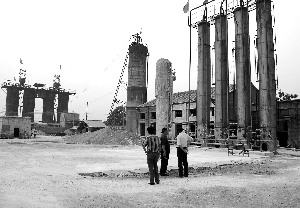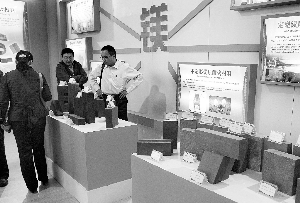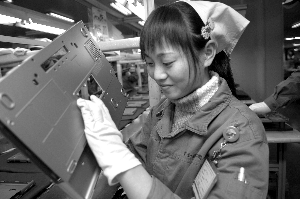
The photo shows Hebei Qiuqi Magnesium Chemical Company which has been discontinued.
The market is getting bigger and more companies have stopped production. In recent months, Zhang Qishan, chairman of Hebei Qiu Magnesium Chemical Co., Ltd., has been watching the production line at the factory stop and stop. Due to sluggish product prices and sluggish market sales, companies have been unable to drive production. The company used magnesium dolomite to produce magnesium carbonate. It was originally a basic raw material product with a wide adaptability to the market. It could be directly used as a refractory material and could be further processed into downstream products such as magnesium hydroxide, magnesium oxide and magnesium metal. Over the years his company's domestic export market has been good. After the global financial crisis, foreign customers suddenly changed their "tastes." The magnesium carbonate market that the company was good at gradually turned cold. Eventually Zhang Qishan had to stop production.
At present, domestic companies that have suffered the same difficulties as Hebei Qiu Magnesium Industry Co., Ltd., as well as dozens of magnesium salt companies such as Hunan Hexin Magnesium Industry Co., Ltd., Hebei Mianhe, Gaolin, Jingjing Jinmei, Jingxing Changxing, Zhejiang Juhe, and Qinghai Kunlun.
According to analysis by industry insiders, the suspension of production of these magnesium salt companies is related to the impact of a large number of magnesium by-products produced by Western Salt Lake enterprises. It is also related to the fact that the products produced by these companies cannot be marketable.
CCIN reporters learned that because China has rich magnesite resources such as magnesite and dolomite, China's magnesium salt industry has always taken the route of magnesium ore raw materials, but this route is currently challenged by the brine raw material route of the western Salt Lake Company. Magnesium salt is the only substance in the salt lake brine in the west, which is second only to sodium salt. In the past, salt lake enterprises used potassium salt and sodium salt products to discharge magnesium salts. However, Salt Lake companies are now vigorously implementing the comprehensive utilization of magnesium salts, which has led to a surge in domestic production of magnesium hydroxide, which has naturally caused a reshuffling of the domestic magnesium hydroxide market.
However, the root cause of the forced shutdown of magnesium companies is the low grade of their products. The most typical example is the export. Sun Wen, chairman of Hebei Magnesium Chemical Co., told CCIN that the magnesium oxide products produced by their company have been exported very well for several years. However, since last year, foreign users have put forward higher requirements for product quality, and their magnesium salt products have been returned by several foreign companies. Mainly two quality indicators exceeded: First, excessive sodium chloride, and second, black and white tablets exceeded. After analysis, the black granules are the coal ash particles brought by the raw materials, which shows that the production environment of domestic enterprises is poor and the management is extensive, resulting in the difficulty in improving the product quality. Originally, exports have always been a major market for domestic magnesium chemical products. However, in recent years, foreign customers have made demands on domestic products with high content of salts, otherwise they will stop cooperation. Domestic companies, on the other hand, just cannot obtain products that can meet the requirements, resulting in a sharp drop in domestic magnesium salt exports. In the past two years, the export volume of magnesium hydroxide could reach more than 20,000 tons per year, and last year its export volume actually dropped to 2067 tons, which is less than one-tenth of the previous one.
Some companies can't figure out what the market is selling so far. CCIN reporter learned that magnesium is known as the 21st century green material, and various magnesium materials have a light weight, high specific strength, high specific rigidity, and easy to recycle. Series unique advantages. In the world, the magnesium industry has been highly valued by various countries and has been widely used in aviation, automobiles, home appliances, medicine, and environmental protection. In recent years, the market sales of magnesium and magnesium compounds have grown at a rapid rate of 20% every year. From the big to the aircraft, the structural materials of cars, to a pill for the treatment of constipation, there are magnesium figures. Car dealers in North America and Europe have taken the number of magnesium alloy parts for a single car as an important measure of automotive technology content.
Under such circumstances, domestic magnesium product manufacturers have fallen into the predicament of unsatisfied products, which is embarrassing. Industry experts pointed out that the crux of the problem is that domestic magnesium companies do not pay attention to the development of the market, blindly stick to the rules. Some companies have not even been able to figure out what the market is selling and what they need.
Professor Hu Qingfu, Technical Consultant of China Inorganic Salt Industry Association, puts forth several data to illustrate the “non-action†of domestic magnesium salt companies: A survey conducted by agricultural research institutes shows that there are thousands of magnesium sulfate consumption potentials as magnesium fertilizers each year. 10,000 tons, but currently there is less than 300,000 tons of actual consumption per year; the United States and Canada consume about 240,000 tons of magnesium hydroxide each year, and Japan consumes 570,000 tons of magnesium hydroxide each year, while China is such a big country. , Only consumes 60,000 tons of magnesium hydroxide annually; subdivides the consumption structure of magnesium hydroxide in developed countries such as the United States and Japan, and the proportion of magnesium hydroxide used in waste gas and wastewater treatment exceeds 50%, and is used to produce flame retardants. The proportion is about 10%, and domestic consumption in these fields is still basically blank; the magnesium metal, which is very popular in the international market, is only produced by the metallurgical enterprises in China using ferrosilicon reduction method using magnesium oxide as the raw material. Little care about...
Experts believe that the market for magnesium chemical products is very strong, and product renewal is fast. Companies do not necessarily have to do much, but they must be precise and must have competitive products that can occupy the market. Otherwise, it is the market that is big again, and you may not be able to win a good battle. 
The development of the magnesium salt industry has received extensive attention in recent years. The picture shows the magnesia materials and magnesium salt products exhibited at the China International Magnesium Materials Expo in Liaoning.
To win a cup of tea, you must open your eyes to see the market. Many magnesium producers are now opening their eyes to find new markets.
Yu Ronghua, chairman of Zhejiang Liandai Chemical Company, was very busy recently. His project to build 800,000 tons of magnesium oxychloride foam insulation board in Qinghai is about to be completed. He will not only handle the engineering work on the site, but also run the development of the product market and fly all day long. His company was originally a company producing magnesium carbonate and magnesium hydroxide. Why did it go to this project?
Originally, as a result of the recent outbreak of major fire accidents caused by external wall insulation materials in the country, the Ministry of Public Security issued a No. 65 document in mid-March this year to specify that the external insulation materials for civil buildings should use Class A materials with flame retardant properties. . Yu Ronghua is worrying about the slow sales of his magnesium carbonate products. As soon as he hears the news, his eyes are bright: this way, many of the original insulation materials will be eliminated, and the magnesium insulation material is a natural high-grade non-flammable insulation. Material, which will free up a huge market for magnesium companies. He decisively decided to take this project.
Yu Ronghua said: “The key to the development of the new market depends on the company itself. The magnesium oxychloride foam insulation board is a brand-new product and a brand-new market. Many builders have never heard of this product. The use of the company is more than just shook his head.Fortunately, our company is born in a private enterprise and is used to the market. It has developed a hard-working, efficient market development team. In recent days, we have been running tight. One is to run the site, repeatedly introduce products to them, on-site test, free of charge.The second is to run the national testing agency to detect various indicators of the product.Tests show that this magnesium oxychloride foam insulation board is not only the highest flame index Grade A, and the thermal insulation index has also reached the current national standards.In the end, although there are resource advantages in Qinghai, railway transportation has always been tense, and railway transportation has failed to implement the market, and now we can see from the results of various people and horses running down. The situation is not bad. After driving, 800,000 tons of products are not sold out."
The same is true for another company that CCIN reporters interviewed. In 2000, Yingkou Magnesite Chemical Group began to use the local rich magnesite to produce magnesium sulfate fertilizer. When their products were first introduced into the market, magnesium and sulfur were not a large number of nutrients needed for crops. Farmers in many places did not have the habit of applying magnesium sulfate fertilizers. Magnesium sulfate fertilizers were not sold on the domestic market. In order to promote the product and open up the market, the company transferred technical personnel, set up a specialized agency, sent technicians to the countryside to do fertilization instruction, and conducted comparative tests so that farmers could see the effect of magnesium sulfate fertilizer production increase. At the same time, vigorously develop the export market. In this way, the market was developed little by little. The market sales volume of the product has grown from zero to more than 200,000 tons per year. The company has also become the largest magnesium sulfate fertilizer manufacturer in China.
The market for magnesium sulfate fertilizers has opened up, and companies that produce magnesium sulfate fertilizers in China have become more numerous. For low-price competition, some companies use recycled waste sulfuric acid to produce magnesium sulfate fertilizer. Recovered sulfuric acid often contains various harmful components, and it is easy to cause food safety hazards when used as fertilizer. Once the magnesium sulfate fertilizer market will be lost. In order to protect the hard-won market, Yingkou Magnesium Chemical Group has run product standards and standardized the production of the industry. Last year, the National Standards Committee finally agreed that the company should exclusively draft agricultural magnesium sulfate national standards. This standard was approved for implementation on July 15 this year. The standard clearly stipulates that it is forbidden to use recycled sulfuric acid containing toxic and harmful components to produce magnesium sulfate fertilizer, which will play an important role in ensuring the quality of products, regulating the production and operation of enterprises, and promoting market development.
The Tianjin Seawater Desalination and Comprehensive Utilization Research Institute uses concentrated seawater to produce magnesium borate whiskers, which can be used as flame retardants and enhancers. As a reinforcing agent for metals, ceramics and other materials, the tensile strength of the material can be increased by about 50%. The company's production scale is not large, magnesium borate whiskers produce less than 100 tons per year, but its production technology, product quality is far ahead in the country, which can monopolize the domestic market. More than 600,000 yuan can be sold per ton of product, and companies can still obtain high profits.
Some experts suggested that magnesium chemical products have a wide range of uses and involve a large area, and have an important role to play in the development of the national economy. The relevant state departments should pay attention to the development of the magnesium chemical product market, such as the magnesium-method flue gas removal* and magnesium scavenger wastewater treatment. Magnesium hydroxide flame retardant promotion and use. However, magnesium companies should seize the opportunity, self-reliance, and actively explore the product market. China is a large country with magnesium resources. In the development of the 21st century green environmental protection industry and the magnesium magnates emerging materials industry, the Chinese magnesium companies must strive to occupy their due status and market share. 
Magnesium alloy has become an important raw material for the 3C industry. The picture shows a magnesium alloy computer housing produced by an electronics company.
Magnesium companies hold a golden bowl